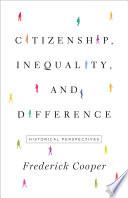
Econometrics and the Philosophy of Economics
Theory-data Confrontations in Economics
This work shows that an econometrician with the proper understanding of economic theory and the right kind of questions can gain knowledge about characteristic features of the social world. It addresses varied topics in both classical and Bayesian econometrics.
- ISBN 13 : 9780691113005
- ISBN 10 : 0691113009
- Judul : Econometrics and the Philosophy of Economics
- Sub Judul : Theory-data Confrontations in Economics
- Pengarang : Bernt P. Stigum,
- Kategori : Business & Economics
- Penerbit : Princeton University Press
- Bahasa : en
- Tahun : 2003
- Halaman : 768
- Google Book : http://books.google.co.id/books?id=mMO0oTwMEx8C&dq=intitle:Philosophy+of+Economics&hl=&source=gbs_api
-
Ketersediaan :
This work shows that an econometrician with the proper understanding of economic theory and the right kind of questions can gain knowledge about characteristic features of the social world.









